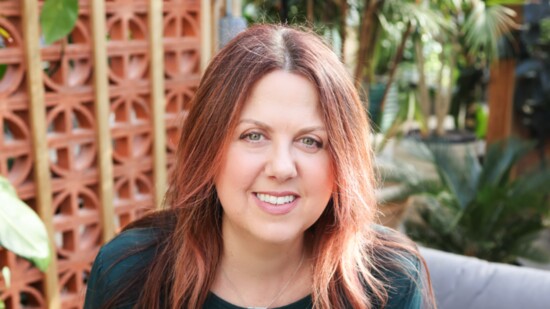Do you long for the day when your life won’t revolve around your restrictive diet? Amy Schleper, MS, RDN, CDCES, treats the most complex dietary cases, but her goal for her clients is always the freedom to live a balanced life.
“My clients’ prior diet experiences have shifted my role towards more of a diet protector. I try to avoid extreme diet restrictions, if possible,” Amy says. “Some modifications are needed of course, which is what medical nutrition therapy is and what dietitians are licensed to practice, but if your diet is so extreme that it’s consuming your entire life… that’s not freedom.”
Amy serves clients throughout the U.S. who have gastrointestinal dysfunction, food sensitivities, histamine intolerance and mast cell activation syndrome (MCAS), POTS/dysautonomia, and other issues.
Because Amy is trained both conventionally and in integrative/holistic approaches, she believes she can provide optimal care for her clients. “I think the best care comes from both perspectives. Our conventional training prioritizes client safety because it keeps us rooted in evidence-based practices, while our functional/integrative approach keeps us open and aware of more modalities.”
Originally from Olathe, Kansas, Amy is a Registered Dietitian Nutritionist, Certified Diabetes Care & Education Specialist, and Founder/Owner of Redo Nutrition, LLC since 2015. She has been practicing as a dietitian since 2009 and has worked at Saint Luke’s Hospital in Kansas City and at College Park Family Care Center in the KC area. In 2018, she was honored with an award for Outstanding Dietitian of the Year by the Kansas City Dietetics Association.
Today, her full-time role at Redo Nutrition includes seeking the root cause of clients’ problems. She analyzes their medications, supplements, sleep patterns, stress, blood sugar, hydration, energy, etc. “If you want a food list or menu, the internet is your place. If you want to get to the root of your problem, I’m your gal.”
Amy says that GI complaints are “overwhelmingly common” and often mistreated. “People often think their symptoms are normal or that diet is the problem. This can lead to food elimination in the effort to troubleshoot. Sometimes people back themselves into a corner with this approach,” she says, adding that a severely limited diet is not always the answer.
Amy says that extreme diets are often recommended to “fix” conditions, but these claims are not supported by quality evidence.
“Symptom improvements on highly restrictive diets are often just a compensation… not a lasting fix. The concept of ‘food is medicine’ is understandably appealing, but without proper guidance, you can get stuck.”
When presenting diet options to clients, Amy prefers the term “informed consent,” analyzing the pros and cons, risks and rewards.
“These are not innocuous choices. A big potential risk of restrictions includes negatively impacting your microbiome, which can exacerbate many of the health conditions that people are trying to improve. Ironically, this can often drive more food reactivity through a variety of mechanisms.”
Many of Amy’s current clients sought her help after trying multiple diets from multiple clinicians.
“They’re scared to eat anything! We must untangle what is real reactivity and what is a food rule that needs to be challenged. I’ve seen clients who have gotten down to 3-5 foods in total (in one case, down to one food only). Once you get there, it is REALLY hard to climb out. There is research supporting the case that when you eliminate foods, you are more at risk of reacting to it later. Your immune system stays more tolerant of foods when you keep them around.”
Amy adds that the advantages of having the broadest diet possible are in a word…nutrients, including carbs, proteins, fats, vitamins, minerals, fiber, water, phytochemicals, etc. “You get the most exposure to these nutrients when you get a variety of foods,” she says. “The lowest mortality risks are associated with the broadest diet possible. So if you choose to embark on an elimination diet, do it alongside a professional, to ensure you don’t get stuck there.”
One client who worked with Amy fully resolved her small intestinal bacterial overgrowth.
“Prior to working with Amy, I had experienced a full year of uncontrolled diarrhea after eating almost anything,” she states. “At times I was scared to even leave my house. The gut issues were giving me a lot of anxiety because no one could figure out what was going on…Today, I no longer have diarrhea after every meal. I am more regular and feel healthier. I eat more of a variety of foods rich in prebiotic fiber. Amy literally changed my life and gave me back the freedom to do things without worry.”
Interested in contacting Amy? Visit redonutrition.com for transparent pricing and to request a free 30-minute phone call.
"A big potential risk of restrictions includes negatively impacting your microbiome."

